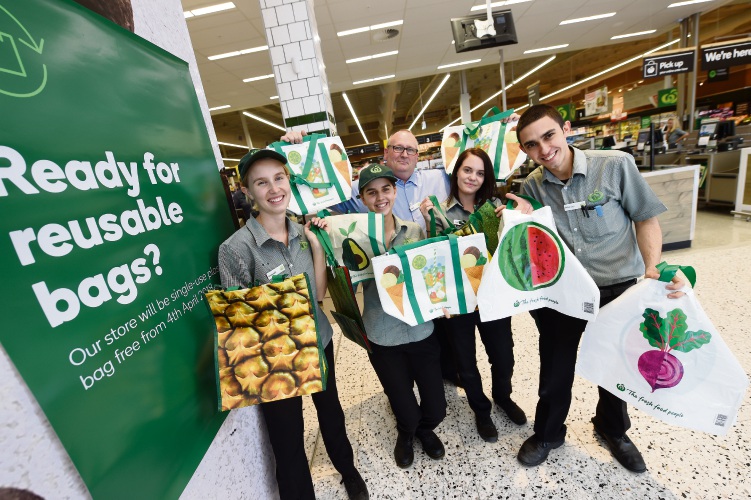Woolworths, one of Australia’s most notable retail giants, have committed to phasing out all single-use plastic bags at checkouts nationally.
This initiative has been trialled at select stores in preceding months, and will be effective on a national scale as of June 20, 2018.
It has been estimated that Australians use around 6 billion plastic bags per year.
Woolworths claim responsibility for distributing a staggering 3.2 billion of these bags, making their decision to transition away from single-use plastics at checkout an immediate environmental win.

Woolworths Group CEO Brad Banducci stated that:
“our teams have been working hard behind the scenes to accelerate the rollout of this plan so we can start making a positive impact on the environment as quickly as possible.”
So what does this mean?
This initiative is leading Woolworths into a new realm of corporate responsibility. Their decision to phase out plastic bags at the checkout being only one part of their commitment to reduce their environmental footprint.
They’re are currently working toward reducing packaging in all stages of the supply chain, especially in the fresh produce sector.
They have responded to public outcry about the questionable logic behind selling organic produce in heavily pre-packaged portions, by wrapping organic produce with stickers to identify them as non – conventionally farmed. They have also set a target to improve the recyclability of all their ‘in-house’ brands packaging, with the aim of contributing to a more circular economy.

Image via Community News Group
However, the employment of a pay per bag system at the checkouts has garnered a lot of criticism, and rightly so.
The ‘reusable’ bags are still made from plastic, albeit of a heavier durability. Which basically just loosely translates into taking longer to break down. However, by eschewing these bags and either having the foresight to BYO calico bag or utilising one of the free recycled boxes available near the checkouts, we will contribute towards a drastic reduction in plastic bag detritus in our nations landfill and waterways.
Backlash
There has also been considerable customer backlash about the inconvenience of needing to remember bags and the punitive cost of the pay per bag system available at the checkout. We live in an era where convenience is king, and these reactions are indicative of our greater cultural reliance on single-use plastics.
When consumer habits become so ingrained that they are almost automated (as in, they require no thought) they prove to be a difficult thing to change.
However, with Australian retail mainstays such as Woolworths exploring more renewable options, collectively we have the opportunity to create a substantial impact toward a more sustainable future.
These environmental initiatives may not be perfect, however they are positive steps toward a solution to an intimidatingly large and complex problem.
With Woolworths leading by example, the narrative is opened up for other big businesses to implement new strategies to create real sustainable change. Coles, the other half of the Australian grocery duopoly, will be joining Woolworths in banning the bag at checkouts, as part of a national rollout which will be effective as of July 1, 2018.
Whilst this progress can be viewed by the eco-aware as frustratingly slow, it’s also a solid indication that the grassroots movement toward a more sustainable future is being catapulted into the mainstream.


